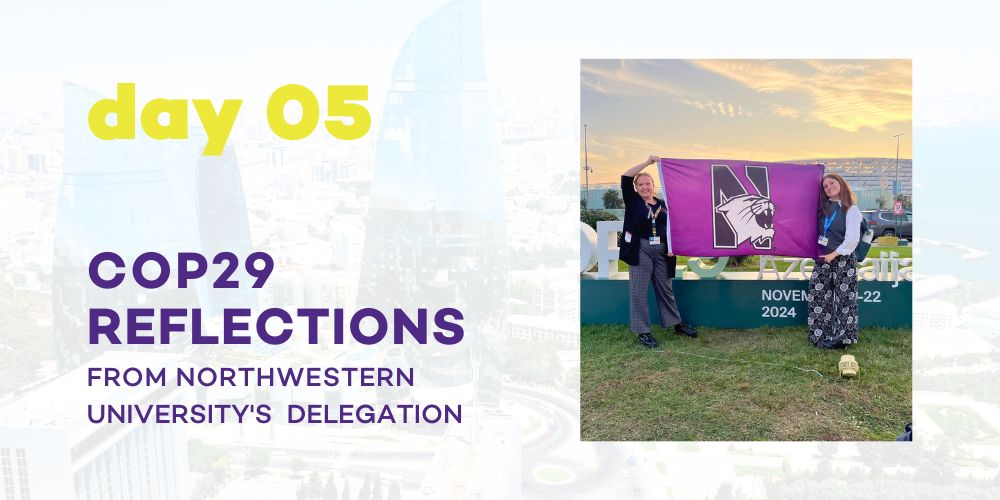Reflections from Northwestern University's COP29 Delegation: Day 5
For a fourth year, a delegation of Northwestern University students and faculty supported by the Buffett Institute is among more than 30,000 researchers, policymakers, industry leaders and activists at the world’s largest annual international treaty negotiations and climate summit, the 29th Conference of Parties (COP29) to the United Nations Framework Convention on Climate Change (UNFCCC), this year hosted in Baku, Azerbaijan. Each day, a different Northwestern delegate is blogging about their experiences and reflections. Day 5 features Katie Cummins, a fourth-year undergraduate majoring in communication studies and minoring in business institutions and Spanish.
Nearly eight years ago, I attended my second mock United Nations Assembly, representing France on the Security Council. At a mere fourteen years old, I was operating with limited knowledge of how the UN—and world—worked, but as I sat in the ballroom of the Galt House in Louisville, Kentucky, I do remember feeling disillusioned. I supposedly had a lot of power as a permanent member on the Council, but I felt as though there was little I could do to affect change. We weren’t passing any real laws people had to abide by, there was a ridiculous amount of formality, one single veto from China could wreck all our progress and, if I remember correctly, the Council wound up being unable to avoid nuclear war in outer space.
Thank God that a team of middle schoolers is not actually in charge of maintaining international security.
Even after my experiences with mock UN, I remained skeptical of the effectiveness of international governance. There is so much conflict in the world and so many looking out for their own interests—how could any country be held accountable for upholding the peace, dignity and equality espoused by an international governing body? How do you get the representatives of eight billion people to reach an agreement? We can’t even agree on things in our own country.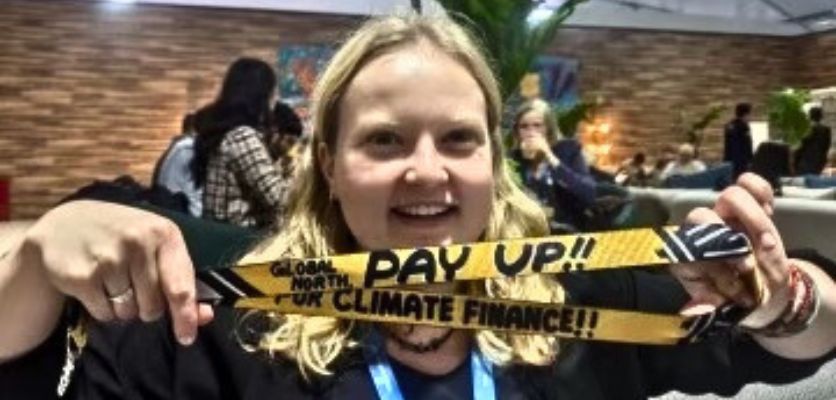
“Global North, Pay Up!! For Climate Finance!!” lanyards they were handing out in the Blue Zone pavilions. Credit: Rachel Silcox.
Now having attended an official UN event at the ripe age of twenty-one years old (something that my fourteen-year-old self did not have on her bingo card), I realize there was a lot of nuance missing from my understanding of international governance. This nuance is best understood in-person, in the hall of a temporary structure built inside an Olympic stadium, seated on the ground with your back against the wall, a half-eaten Clif bar balancing on your backpack, about forty million tabs open on your laptop as people from every single corner of the world stream by. Am I painting the picture well? Good.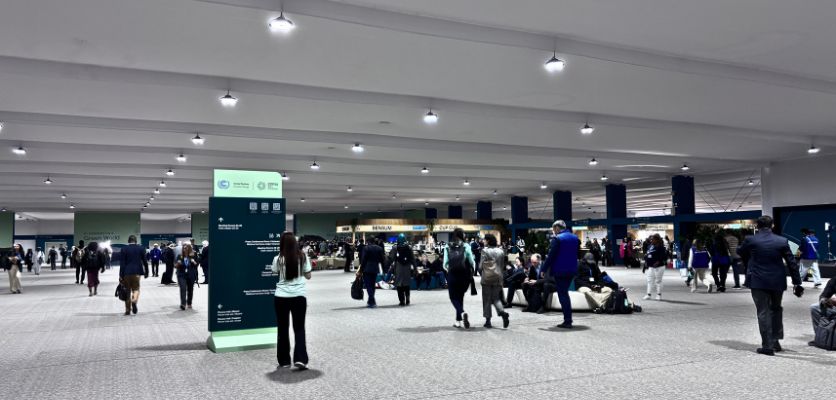
The temporary space constructed inside Baku Olympic Stadium. Credit: Katie Cummins.
If you don’t have a university that will fund you to conduct research and attend the actual event in person, then reading an ethnographic account is a close second. It would be impossible to capture the feeling of existing in a space with fifty thousand other people, united by a sense of duty and hope, with numbers. A survey could only get you so far. But being at the event—exchanging smiles and shaking hands and speaking with all kinds of people and picking up free stickers and over-hearing more languages than you knew existed being spoken aloud at one time—that is the way to understand the proper dynamics of a COP. And report it back to the masses.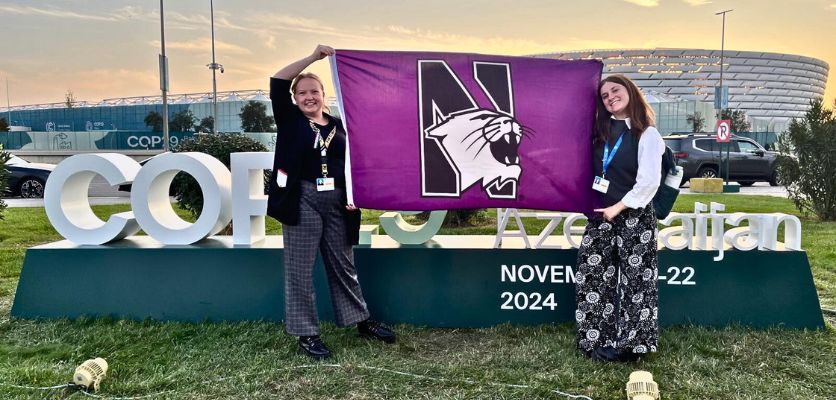
Katie Cummins and Talia Ginsberg posing with the NU flag in front of a COP29 sign. Credit: Kim Suiseeya.
So, even though I am still skeptical about the accountability aspect of international governance, I realize that the function of this event is not necessarily about governance so much as it is about bringing together an international community, engaging people in conversations with each other and pushing our world a little bit further along on its journey toward healing. The process is not perfect, but it is significant and impressive. For now, I am radically optimistic about our future. I hope to bring this optimism back with me to campus. See you soon, Evanston.
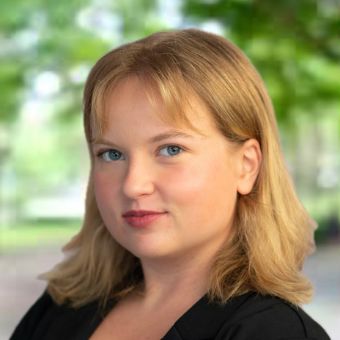
Katie Cummins is a fourth-year undergraduate at Northwestern University majoring in communication studies, minoring in business institutions and Spanish, and pursuing a certificate in energy and sustainability through the Paula M. Trienens Institute for Sustainability and Energy. She is an alumna of the Northwestern Global Learning Office’s Global Engagement Studies Institute, through which she spent the past summer working for a socio-ecological NGO in Salta, Argentina. She also recently participated in an interdisciplinary Global Engineering Trek to Chile supported by the Buffett Institute and Trienens Institute and led by Professor Kimberly Marion Suiseeya, where she learned about sustainable practices in the Chilean critical mining industry. Currently, she is a fellow at the Northwestern Global Learning Office and volunteers as a student board member for Climate Action Evanston.

